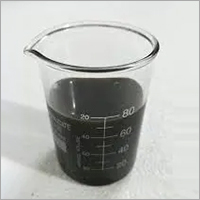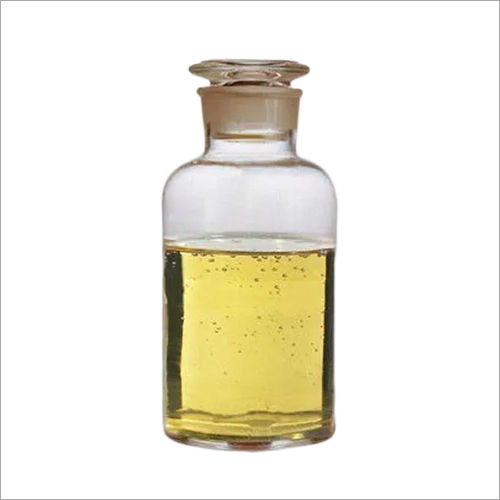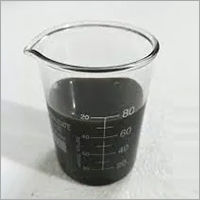- Home Page
- Company Profile
-
Our Products
- Food Preservatives
- Speciality Chemicals
- Petroleum Sulfonates
- Sodium Petroleum Sulphonate (RP Grade)
- Sodium Petroleum Sulfonate (Emulsifier Grade)
- Calcium Petroleum Sulphonate (Neutral)
- Barium Petroleum Sulfonate (Neutral)
- Magnesium Petroleum Sulfonate
- Calcium Petroleum Sulfonate (30TBN)
- Calcium Petroleum Sulfonate (400TBN)
- Barium Petroleum Sulphonate
- Petroleum Sulfonate
- Calcium Petroleum Sulfonate (300TBN)
- Lubricant Additives
- Heavy Duty Engine Oil Additive
- 2T Oil Additive ( GL 2004)
- 4T Engine Oil Additive
- Gear Oil Additive
- Quenching Oil Additives
- Engine Oil Additive CI4-CH4
- Circulating and Turbine Oil Additives
- Marine Oil Additives
- Spindle Oil Additive
- Rust Preventive Oil Additives
- Metal Working Fluids Additive
- 2T Engine Oil Additive
- Engine Oil Additive
- Hydraulic Oil Additive
- Cutting Oil Additive
- Lubricant Components
- Viscosity Modifiers
- Extreme Pressure Additive
- Polyisobutylene Succinic Andhydride
- Butylated Octylated Diphenylamine
- Pour Point Depressant
- TBN Boosters
- Antioxidant ZDDP
- TBN Booster Calcium (400TBN)
- TBN Booster Magnesium (400TBN)
- Zinc Dialkyldithiophosphate GL9334
- 300 TBN Booster Calcium
- Polyisobutenyl Succinic Anhydride
- Zinc Dialkyldithiophosphate
- Polyisobutylene Succinimide PIBSI
- Dispersant Additive
- Viscosity Index Improvers
- Pour Point Despresant
- Phenolic Antioxidant
- TBN Booster Calcium (300TBN)
- Brake Fluid
- Contact Us

Polyisobutenyl Succinic Anhydride
195 INR/Kilograms
Product Details:
- Type Liquid
- Oil Type Lubricating oils
- Color Black
- Pack Type Drum
- Vehicle Type Heavy Vehicle
- Click to view more
X
Polyisobutenyl Succinic Anhydride Price And Quantity
- 195 INR/Kilograms
- 25 Kilograms
Polyisobutenyl Succinic Anhydride Product Specifications
- Heavy Vehicle
- Liquid
- Lubricating oils
- Black
- Drum
Polyisobutenyl Succinic Anhydride Trade Information
- 100 Kilograms Per Day
- 6 Days
Product Description
Polyisobutenyl succinic anhydride (PIBSA) is a chemical compound commonly used as an additive in lubricating oils and fuels. It falls under the class of chemicals known as succinic anhydrides. PIBSA is formed by the reaction of polyisobutene (a type of polymer) with maleic anhydride, which results in the attachment of succinic anhydride groups to the polymer backbone.# PIBSA is used as a multifunctional additive in lubricants and fuels for several reasons: 1. Detergency: PIBSA acts as a detergent and dispersant, preventing the formation of deposits and sludge in engines and machinery. It keeps engine parts and fuel injectors clean by dispersing and suspending contaminants.2. Corrosion Inhibition: PIBSA can help protect metal surfaces from corrosion and rust by forming a protective film on them.3. Anti-Wear Properties: PIBSA can reduce friction and wear between moving parts, extending the life of machinery and reducing maintenance requirements.4. Viscosity Modifier: It can also function as a viscosity modifier, improving the flow properties of lubricating oils.5. Lubricity: PIBSA can enhance the lubricity of oils and reduce friction, which is especially important in engine applications.6. Fuel Additive: In addition to its use in lubricants, PIBSA is sometimes added to gasoline and diesel fuel to improve combustion efficiency and reduce emissions.The specific properties and performance of PIBSA can vary depending on its molecular weight, the degree of substitution with succinic anhydride groups, and other factors. Different PIBSA derivatives may be used in different applications to achieve specific performance goals.Overall, PIBSA plays a crucial role in maintaining the cleanliness and performance of engines, machinery, and other mechanical systems that rely on lubricating oils and fuels.# FAQ: 1. What is PIBSA?Ans: PIBSA stands for Polyisobutenyl Succinic Anhydride. Its a chemical compound used as an additive in lubricating oils and fuels.2. How is PIBSA produced?Ans: PIBSA is typically produced by reacting polyisobutene, a type of polymer, with maleic anhydride. This reaction results in the attachment of succinic anhydride groups to the polymers backbone.3. What are the primary functions of PIBSA in lubricants and fuels?Ans: PIBSA serves as a multifunctional additive, primarily functioning as a detergent, dispersant, corrosion inhibitor, anti-wear agent, viscosity modifier, and lubricity enhancer in lubricating oils and fuels.4. What is the role of PIBSA as a detergent and dispersant?Ans: PIBSA prevents the formation of deposits and sludge in engines and machinery by dispersing and suspending contaminants, helping to keep engine parts and fuel injectors clean.5. How does PIBSA protect against corrosion?Ans: PIBSA can form a protective film on metal surfaces, protecting them from corrosion and rust.6. Does PIBSA reduce friction and wear in machinery?Ans: Yes, PIBSA can reduce friction and wear between moving parts, extending the life of machinery and reducing maintenance requirements.7. Can PIBSA modify the viscosity of lubricating oils?Ans: PIBSA can serve as a viscosity modifier, improving the flow properties of lubricating oils.8. What is lubricity, and how does PIBSA enhance it?Ans: Lubricity refers to a substances ability to reduce friction. PIBSA can enhance the lubricity of oils, reducing friction between moving parts in engines and machinery.9. Is PIBSA used in fuels, and if so, what is its role?Ans: Yes, PIBSA is sometimes added to gasoline and diesel fuel to improve combustion efficiency, reduce emissions, and enhance lubricity, which is especially important in engine applications.10. Are there different types or derivatives of PIBSA, and how do they vary in their applications?Ans: Yes, there are different types of PIBSA derivatives with varying molecular weights, degrees of substitution with succinic anhydride groups, and other factors. These variations are used in different applications to achieve specific performance goals.11. What industries or applications commonly use PIBSA?Ans: PIBSA is used in the automotive industry, industrial machinery, and various other sectors where lubricating oils and fuels play a crucial role in maintaining equipment and engine performance.12. Are there any safety considerations when handling PIBSA?Ans: Like many chemicals, PIBSA should be handled with care. Safety data sheets and guidelines should be followed to ensure safe handling, storage, and disposal.FAQs of Polyisobutenyl Succinic Anhydride:
Q: What is the application of Polyisobutenyl Succinic Anhydride?
A: Polyisobutenyl Succinic Anhydride is primarily used in the formulation of lubricating oils for heavy vehicles.Q: What is the pack type available for Polyisobutenyl Succinic Anhydride?
A: Polyisobutenyl Succinic Anhydride is available in drum packaging.Q: What is the physical state and color of Polyisobutenyl Succinic Anhydride?
A: Polyisobutenyl Succinic Anhydride is a liquid product and appears black in color.Q: Which type of vehicles can use lubricating oils formulated with Polyisobutenyl Succinic Anhydride?
A: Lubricating oils formulated with Polyisobutenyl Succinic Anhydride are suitable for heavy vehicles.Q: What type of oil can Polyisobutenyl Succinic Anhydride be used in?
A: Polyisobutenyl Succinic Anhydride is specifically used for lubricating oils.Tell us about your requirement

Price:
Quantity
Select Unit
- 50
- 100
- 200
- 250
- 500
- 1000+
Additional detail
Mobile number
Email







 Call Me Free
Call Me Free
